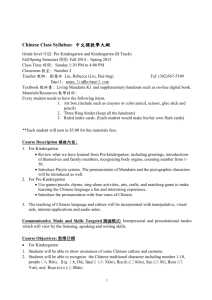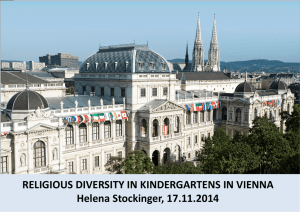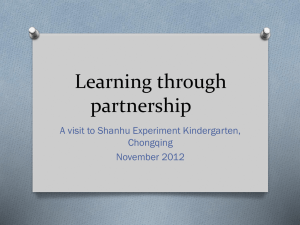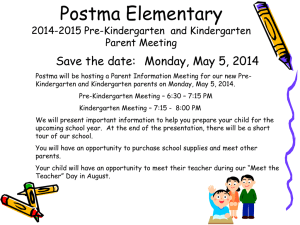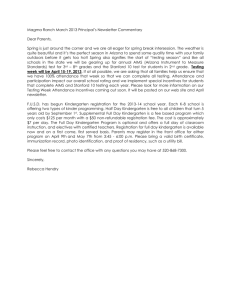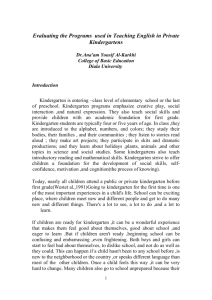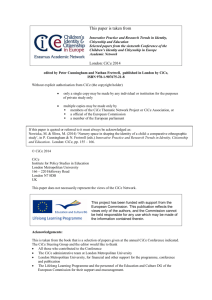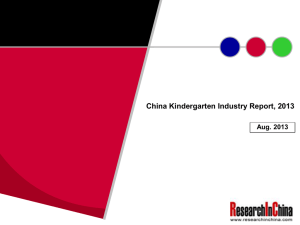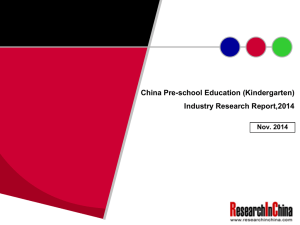The transformed teaching methods as directions for young children`s
advertisement
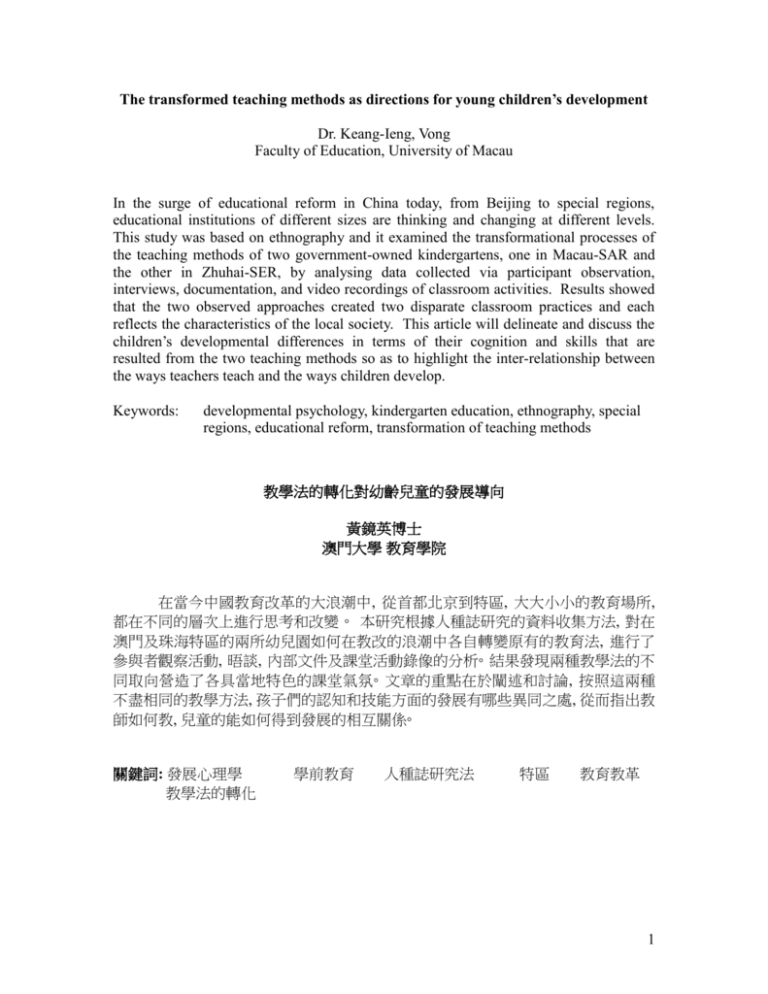
The transformed teaching methods as directions for young children’s development Dr. Keang-Ieng, Vong Faculty of Education, University of Macau In the surge of educational reform in China today, from Beijing to special regions, educational institutions of different sizes are thinking and changing at different levels. This study was based on ethnography and it examined the transformational processes of the teaching methods of two government-owned kindergartens, one in Macau-SAR and the other in Zhuhai-SER, by analysing data collected via participant observation, interviews, documentation, and video recordings of classroom activities. Results showed that the two observed approaches created two disparate classroom practices and each reflects the characteristics of the local society. This article will delineate and discuss the children’s developmental differences in terms of their cognition and skills that are resulted from the two teaching methods so as to highlight the inter-relationship between the ways teachers teach and the ways children develop. Keywords: developmental psychology, kindergarten education, ethnography, special regions, educational reform, transformation of teaching methods 教學法的轉化對幼齡兒童的發展導向 黃鏡英博士 澳門大學 教育學院 在當今中國教育改革的大浪潮中, 從首都北京到特區, 大大小小的教育場所, 都在不同的層次上進行思考和改變 ◦ 本研究根據人種誌研究的資料收集方法, 對在 澳門及珠海特區的兩所幼兒園如何在教改的浪潮中各自轉變原有的教育法, 進行了 參與者觀察活動, 晤談, 內部文件及課堂活動錄像的分析◦ 結果發現兩種教學法的不 同取向營造了各具當地特色的課堂氣氛◦ 文章的重點在於闡述和討論, 按照這兩種 不盡相同的教學方法, 孩子們的認知和技能方面的發展有哪些異同之處, 從而指出教 師如何教, 兒童的能如何得到發展的相互關係◦ 關鍵詞: 發展心理學 教學法的轉化 學前教育 人種誌研究法 特區 教育教革 1 1) Introduction Western pedagogical ideas of quality early childhood education are gaining the attention of the People’s Republic of China government (or known as the P.R.C.) due to the economic status of the West. Chinese consider their Western counterparts as innovative and creative people whose abilities are reflected by their products. These products bring the countries wealth and status in the world. Innovative and creative ideas come from creative people. Many then turn their attention to quality education and its effect on children’s creativity. As the People’s Republic of China became a member of the World Trade Organisation (WTO) in the year 2001, the Chinese Government would very much like to see reforms in its education system so that its future generations will be able to compete with their Western counterparts. During a press conference in Beijing in March 2006, the Minister of Science and Technology of China announced that one of the goals of the Chinese government is to become an innovation-oriented country in the near future. If we are serious about the point that Western pedagogical ideas of quality education and Western kindergarten practice are positive in fostering children with creative minds, what kind or kinds of young learners are we fostering? Are we doing enough to enrich the creative minds of our children? Many young children in kindergarten classrooms in Chinese societies are still taking a passive role in their classrooms which is in contrast to the practice of many kindergartens in the West where children take a much more active role in learning. Having said that, it is unwise to adopt the practice of kindergartens in the West and drop our own altogether. So, early childhood educators should also ask the question “how much is enough?” This research studied early childhood programmes in government-owned kindergartens in Macao-SAR1 and Zhuhai-SER2, two special regions of China, and examined the process that both sides were experiencing with the intention to make their programme more creative. While kindergarten teachers, head teachers and government officials responsible for supervising early childhood programmes are aware of the importance of providing quality education and nurturing creative minds, what measures should be taken by kindergartens in order to meet the contemporary goal of early childhood education? Taken together, the above issues have given me reasons to look at the following questions: - 1 2 In what ways are kindergartens in Macao-SAR and Zhuhai-SER adapting to Western educational concepts? Out of the different kindergarten programmes practised in Macao-SAR and Zhuhai-SER, what kind(s) of ability are they promoting in children during their development? SAR stands for Special Administration Region SER. stands for Special Economic Region 2


